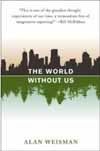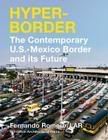
As I mentioned
yesterday, our President, Allison Hill, was lucky enough to attend the Beijing Book Fair as part of the American and British delegation of booksellers put together by Book Expo's
Lance Fensterman. Now that she's back stateside and recovered from jet lag, she agreed to sit down with me and discuss her experiences.
Patrick: You were part of the delegation of American and British booksellers attending the Beijing Book Fair. Who else was with you on the trip?
 Allison: There were three other American booksellers -- Karl Pohrt, owner of Shaman Drum in Ann Arbor, MI [Karl blogged about the event here], Paul Yamasaki of City Lights, Sarah McNally of McNally Robinson, and Rick Simonson of Elliott Bay Book Company -- one American librarian, three British booksellers, and one British librarian...so ten of us in all.Patrick: Were there other Westerners at the Fair?Allison:
Allison: There were three other American booksellers -- Karl Pohrt, owner of Shaman Drum in Ann Arbor, MI [Karl blogged about the event here], Paul Yamasaki of City Lights, Sarah McNally of McNally Robinson, and Rick Simonson of Elliott Bay Book Company -- one American librarian, three British booksellers, and one British librarian...so ten of us in all.Patrick: Were there other Westerners at the Fair?Allison: It seemed like we were the only Westerners in the entire city, let alone the fair! We saw very, very few non-Asians during the entire trip, maybe a handful of folks at the Great Wall, but that was it. There wasn't the racial or ethnic diversity that we in the West have come to value or expect, although by the end of the trip, I realized that the Chinese themselves could see great diversity that a Western person just couldn't see. Also, we might've been the only people dumb enough to go to Beijing in January. It was so cold! You know it's cold when the guy from Michigan is complaining! On the day we went to the Great Wall, I think it was around 10 degrees Fahrenheit and windy. I had to buy a ski mask at the Great Wall. That's how cold it was.
Patrick: What were your impressions of Beijing?Allison: It wasn't the most beautiful city I've ever seen. There was the sense that you were in a nondescript big city. There weren't that many architectural flourishes that made it seem distinctly "Chinese." Beijing was very clean. There were people everywhere with old-fashioned straw brooms sweeping the pavement even though there was nothing there to sweep. It was definitely polluted. The first day I was there I could feel the pollution in the back of my throat.
Patrick: How did the fair run? What were the speakers like?Allison: The fair itself was pretty much exactly like BEA but in China -- a huge room full of booths from publishing companies. The panels ran all day for one of the days in a big room full of people eager to hear the speakers. We had to listen to most of the speakers through headsets that provided translation, and sometimes the translations were a little bit off. At the end of my talk [which was about how independent bookstores can survive and thrive in a competitive environment], the MC of the event asked everyone in the room to stand up and say what they had learned from my talk as a way of thanking me. At first I thought, "My god, there are so many people in here. Even if each person only speaks for a minute, we'll be here for hours." But it was really quite moving.
 Patrick: What did you know about the Chinese book market before you went to the fair? What were the Chinese bookstores like?Allison:
Patrick: What did you know about the Chinese book market before you went to the fair? What were the Chinese bookstores like?Allison: I knew nothing at all about the Chinese book market before the trip. I did some preliminary research when I learned I'd be speaking at the fair, but that was it. Luckily, we visited some stores pretty early in the trip, so that was helpful. We visited four independent shops and a few state-run bookstores, too. Chinese bookstores are really amazing. One store we went to, the owner asked how we make do with a staff of only 120 or so people. His store employs 500 people. When I saw the store, I understood why. It was 355,000 square feet! I asked about the buying strategy, and they told me they buy
every single book published in Chinese. They also buy lots of titles in English, since one of their bestselling categories is books about learning English. Most Chinese books have both Chinese and English on the title. Since we sell a lot of non-book items at Vroman's, I asked about that at the stores we visited. The major independent store had a small glass case of calculators, fountain pens, etc. that the government "allowed him to have." But at the state-run store, the manager told me he had a "small selection" and showed me the third floor of his shop. It was like a Best Buy store! He had

vacuum cleaners, electronics, everything. The other thing that amazed me was that booksellers are the same everywhere. We would walk into a room full of Chinese people, and we could all pick out the booksellers. They just looked like booksellers.
Patrick: What issues were the Chinese booksellers you met most interested in?Allison: Mostly profitability (and cutting staff, which is understandable considering the size of some of the staffs) and the internet. The internet is just now becoming an important tool for bookselling in China. Amazon isn't in the market yet. There's an equivalent Chinese site, but it's a little bit different from Amazon; it's very involved in the bookselling community. Very few bookstores have any kind of internet presence. Everyone is terrified of Amazon, which I suppose they should be. They were interested in how we've coped with the internet and used the internet to our advantage.
Patrick: What did the Chinese know about the American book market?
Allison: They knew Amazon, of course, but they didn't have a great level of knowledge about American independents. They'd never heard of Powell's or Vroman's. The one independent store that had a profile there was
City Lights in San Francisco. They knew about the history of it, Lawrence Ferlinghetti and the Beat movement, and I think the socio-political aspect of it appealed to them. There was a photo of City Lights hanging in one of the independent stores we went to there.
Patrick: Did you feel any level of repression while you were there or did it seem that most people were free to do and say what they pleased?Allison: I'd forget about if for a long time, then something would happen and I'd realize that we really have no idea what pressures these people must be feeling. I asked a few people about the Olympics, and most people would give me the party line: "We're very honored to be hosting..." But
Xue Ye, the executive director of their booksellers association, told me "Some of our members think the Olympics are a mistake, that money is being misspent, and the city will suffer for it." There was always the sense that the country was at a sort of tipping point, but the more I talked to people, the more they told me they didn't think much would change after the Olympics. One interesting area where the censorship or repression reared itself was bookstore events. We were at this terrific independent store called Sage, and we were asking the owner if he held events. He didn't seem to understand what an event was. We explained about author signings and readings. Eventually, someone explained to us that the government is suspicious of gatherings like readings, as they could be the basis for dissent. That was a sobering moment.
Patrick: I have to ask about the food. It's become a cliche to say that Chinese food in America isn't like real Chinese food. So what was the "real" Chinese food like?Allison: Well, I'm a vegetarian, which made things difficult. I would ask if something was vegetarian, and they would say, "Yes, vegetarian. Only pork." I think vegetarian was being translated as "containing vegetables." The food was definitely not as deep fried as American Chinese food, not as sugary. Things would be lightly fried. There was a lot of meat, most of which was pork. Lots of dumplings. The last dinner we had was a traditional Peking duck. Our hosts did a good job of showing us all the various regional cuisines, doing a different area each night. Rice is really an afterthought there, which surprised me. We would be offered noodles or rice at the end of a meal, as a palate cleanser, but not as a staple or accompaniment. There was also a lot of juice, some of which was good, like a pomegranate juice or a fruit juice. Once I was served juice that was described as "fruit juice." When I smelled it, I realized it was corn juice. Mmm. Like a can of cream corn. I have to admit that after ten straight nights of Chinese food, I found myself craving cheese and other Western foods that they just don't eat. The last night there, we went to a place called Bookworm, which was a bar/restaurant and lending library. They also had two bays of books for sale, which was like filling two bays with your absolute favorite books. Whoever did their buying was doing great job. Unfortunately, some of our British friends got a bit too loud, and one of the other diners had to "Shh!" us, explaining that we were in a library bar, and as such, we would need to keep our voices down.

Labels: book fairs, bookselling, China





















